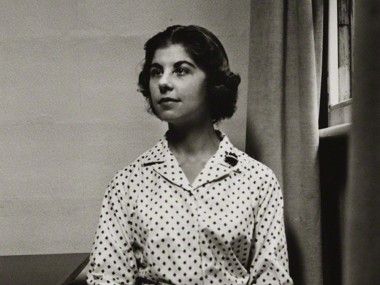Sex with Strangers, Hampstead Theatre
Thursday 2nd February 2017

The current crisis in British new writing for the theatre is exemplified by the reliance of so many venues on American playwrights to pull in the punters. There’s nothing wrong with American playwrights, but wouldn’t it be nice to see some more British ones promoted? In this two-hander, the Hampstead Theatre’s latest homage to writers from across the pond, the cast is Emilia Fox, the Silent Witness regular who has previously appeared here in Gina Gionfriddo’s Rapture, Blister, Burn, as well as television and film star Theo James.
Odd bedfellows are an ideal subject for comedy, and for passion — because opposites attract, right? Well this is the rather standard set up of the latest and smartish new drama from American playwright and House of Cards script-writer Laura Eason, which tells the story of an odd-couple meeting that results in some hot sex and some even more heated ambition. It has already been staged in Chicago and New York, and now London audiences have a chance to sample it.
The curtain rises on a bed-and-breakfast retreat in rural Michigan. Outside the snow is falling. It’s where 39-year-old Olivia, an aspiring literary novelist, has secluded herself to get some peace and quiet. Which is just what she needs to put the finishing touches to her second novel. Immediately she is disturbed by the arrival of 28-year-old Ethan, a blogger who has achieved notoriety by publishing Sex with Strangers, a lurid and exaggerated account of his erotic encounters with dozens of women. Pretty soon he reveals that his appearance is no chance encounter: he has been wanting for a long time to meet Olivia on the strength of her first novel.
Olivia is flattered by the attention and interest of this younger man, although everything about him screams “Danger!” in exclamation marks and grimacing emoticons. Conveniently, the internet connection is down so she can’t google him, and the first half of the evening is a classic boy-meets-girl scenario. It’s believable, just, even if the contrasts between the two are highly schematic. Olivia loves books (hardbacks and paperbacks) while Ethan loves digital downloads; Olivia is an introvert while Ethan is an extrovert; Olivia is shy while Ethan is an exhibitionist; Olivia has been disappointed in the reception of her first book while Ethan is a media superstar. And then… Well, didn’t I say that opposites attract?
When the action moves to the big city in Act Two, Eason cleverly pushes these contrasts up a few notches by giving Ethan the desire to write a serious novel, and Olivia the opportunity to use the internet to promote her literary ambitions. It’s a combustible mix and the scene is set for betrayal and the reversal of fortunes. As the dialogues play with ideas about public and private identity, and ask how comfortable are we with our online personas, a picture emerges of two rather selfish individuals who are rather easily caught in the snares of fame and dazzled by the lure of success.
Despite a handful of bitter recriminations at the end, both Olivia and Ethan are really quite likable, maybe even too nice. Eason’s writing here is more about ideas than deep emotions and she never quite explores the ugliness, especially the masculine urge to abuse women, that she herself has sugggested is central to the story. Although both her characters end up noticeably wiser, Eason can’t quite shake off the failing of so much American playwriting: namely, its stubborn refusal to dive deep into the darkness of its own imaginings.
But if this is a drama that focuses more on ambition than upon the stranger corners of sexual desire, on publishing rather than penetration, it’s difficult to fault Peter Dubois’s sympathetic production, which is designed by Jonathan Fensom. The director’s touch is deft, and he avoids sentimentality while keeping up the tension. So Fox’s Olivia is quite a complex study in vulnerability, whose poverty of self-esteem gradually turns into pleasure at success, while James’s Ethan shows clearly how his character’s bad-boy persona is a hindrance as well as a front. She’s needy without being whiney and he’s arrogant without being unsexy. What’s disappointing is that their creator is unwilling to probe more deeply into their souls.
This review first appeared on The Arts Desk




